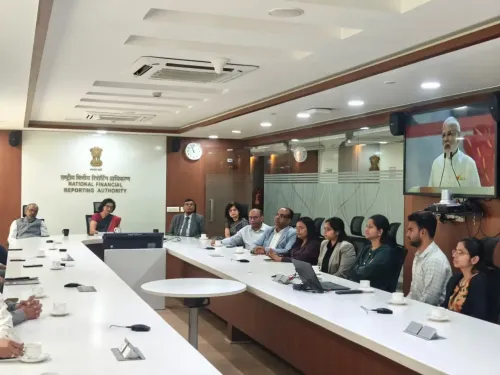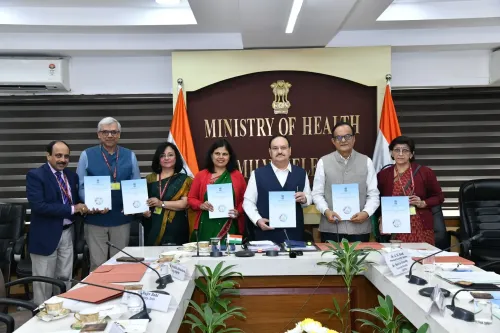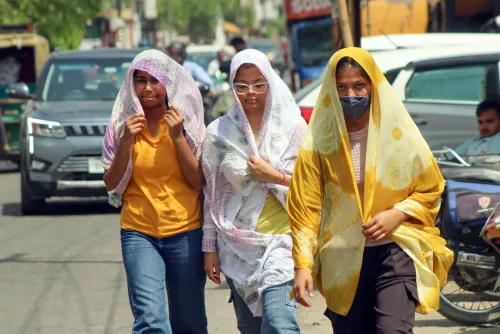Have 224 Cases of Japanese Encephalitis Been Reported from 11 States in 2025?

Synopsis
Key Takeaways
- 224 cases of Japanese Encephalitis reported in 2025.
- Cases documented across 11 states in India.
- Assam had the highest cases at 127.
- 2025 shows a decrease in cases compared to previous years.
- Strengthening of disease surveillance through the IDSP.
New Delhi, Aug 8 (NationPress) In 2025, a total of 224 cases of Japanese Encephalitis (JE), a viral illness spread by mosquitoes, have been documented across 11 states, as reported by the government to Parliament on Friday.
In response to a question in the Lok Sabha, Anupriya Patel, the Union Minister of State for Health and Family Welfare, disclosed the number of encephalitis cases—an inflammation of the brain often resulting from bacterial or viral infections—recorded in the nation over the past five years.
When compared to the previous five years, the year 2025, as of June 30, has shown the lowest incidence of JE.
Patel stated, "The 11 states reporting JE cases in 2025 include Assam, Bihar, Jharkhand, Karnataka, Manipur, Meghalaya, Odisha, Tamil Nadu, Tripura, Uttar Pradesh, and West Bengal."
Among these, Assam recorded the highest number of JE cases at 127, while Uttar Pradesh had the lowest with just 2 cases.
In 2020, there were 729 cases, which increased to 787 in 2021, and further to 1,109 in 2022. The numbers slightly decreased to 1,107 in 2023, yet 2024 witnessed the highest cases at 1,472, according to Patel.
The National Centre for Vector Borne Diseases Control (NCVBDC), under the Ministry of Health and Family Welfare, is responsible for maintaining surveillance data on JE cases, Patel added.
"While various factors contribute to the incidence of encephalitis in India, including environmental, socio-economic, and nutritional elements, it is crucial to acknowledge that timely and standardized reporting is essential for effective surveillance and response," she emphasized.
The Minister highlighted that the Ministry of Health and Family Welfare has enhanced its disease surveillance framework.
The Integrated Disease Surveillance Program (IDSP) is a critical initiative under the National Health Mission, conducting disease surveillance across the nation.
Patel noted, "IDSP is operational in all 36 States/UTs and is charged with monitoring epidemic-prone diseases, including Acute Encephalitis Syndrome (AES) and Japanese Encephalitis (JE). This program facilitates early detection and prompt response to outbreaks.
Weekly reporting from districts under the IDSP is conducted via a three-tier system (S, P, and L forms) to capture suspected and laboratory-confirmed cases of AES/JE.
"To further enhance disease surveillance in the country, the IDSP has transitioned from a paper-based reporting system to a digital format through the Integrated Health Information Platform (IHIP)," the Minister stated.
IHIP serves as a comprehensive information platform, integrating data from various registries to provide near real-time health surveillance data across India, enabling decision-makers to implement appropriate public health measures.
IHIP supports case-based surveillance with geo-tagging, decision-making tools, and integrated dashboards.
The NCVBDC also runs a specialized program for controlling Japanese Encephalitis (JE) known as the National Programme for Prevention and Control of Japanese Encephalitis (JE).









